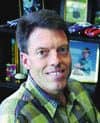Asleep on the Job

“I definitely think it is a problem,” she says, adding that she is aware of some technologists who have fallen asleep for as long as an hour while monitoring studies.
A not-so-secret issue in sleep medicine is that the very people helping those with possible sleep disorders get a diagnosis and gain access to proper treatment are themselves often at risk for sleep deprivation. While patients sleep, the technologists who stand watch over them may go without.
When one factors in the voracious demand for qualified staff to monitor sleep studies in this rapidly growing field, it becomes easy to see how those who should be among the healthiest of sleepers because they are surrounded by sleep information in their work, sometimes are just as at risk of sleep deprivation linked to shift work as pilots, truck drivers, and nighttime factory workers. Employers are the watchdogs charged with regulating the field, but their motivation may sometimes be divided. Rather than fire a sleep technologist who falls asleep on the job, an employer may decide to give a second or third or even fourth chance to improve, both out of kindness and a desire to not lose a valuable staff member when the facility may already be stretched by the shortage of sleep technologists.
One could argue that a technologist falling asleep on the job is not as much of a cause for concern as a pilot or someone operating dangerous large machinery in a plant, but is it really? Patients certainly assume an alert technologist is watching over them and, though the risk may be small, there is always the chance that a dangerous situation, such as a heart attack or stroke, could occur during a polysomnogram.
In addition, a sleeping technologist can cause problems with the study’s results. “You can see it on the studies when technicians fall asleep,” Perkins says, because the test settings are not monitored and adjusted as carefully.
In this issue we present the results of an online survey we did in January that found that many sleep professionals were going without enough sleep and felt they were often sleep deprived because of their jobs. While not a scientific study, we hope it will draw attention and possibly interest in additional research into this issue. Sleep medicine professionals have done an admirable job of raising public awareness of the health and public safety issues surrounding chronic sleep deprivation. As this issue was going to press the Today show on NBC was even devoting a week just to sleep issues. However, it may now be time to also look inward and examine if the field also can do a better job of helping its own and thereby lead the fight against the dangers of sleep deprivation by example as well as by words.
We welcome your feedback on this survey and will try to publish as many of your responses as we can in our next issue. Also, if you have not visited us online in a while, please do stop by our Web site at www.sleepreviewmag.com. Big changes are afoot there. We have added an “Expert Insight” section where readers can pose questions to various leaders in different areas of sleep medicine, and we will soon be launching an online news section that will provide more extensive coverage of industry news than we have room for in the magazine. Enjoy!
Lena Kauffman
[email protected]




![Communicating About Noncommunicable Diseases [Editor’s Message]](https://sleepreviewmag.com/wp-content/uploads/2019/02/WHO-noncommunicable-diseases-440x264.jpg)